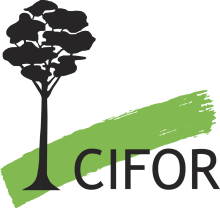Resource information
Kotawaringin Timur district lies within the Dayak heartland of Central Borneo, Indonesia. Prior to the late 1960s, most of the district was covered in dense tropical forest. However, these forests have been increasingly exploited since the 1970s when former-president Soeharto granted large timber concessions to logging companies in the area. Although Kotawaringin Timur’s forests still supply 49 percent of Central Kalimantan’s log production and half of its sawn timber and moulding, its forest resources are close to being exhausted. The rate of deforestation and forest degradation in the area is also increasing as the illegal logging trade takes hold. By 2000, around 511,823 m3 of meranti logs, or close to half of the district’s official log production, were ‘illegally’ harvested in the district. In the era of regional autonomy, the Kotawaringin Timur government is increasingly relying on the district’s forest resources for income. In doing so, it has effectively legalised and legitimised illegal logging in the district and wrested much of the revenues obtained from large-scale logging from the provincial and central governments. For example, the district government was able to generate an estimated US$ 6.2 million from the natural resource sector in 2000. More than half of this revenue was obtained from the illegal logging trade alone. As Kotawaringin Timur’s forest resources decline, the district government hopes to generate income from the plantation sector--particularly the oil palm sub-sector. This paper examines the status of forest resources in Kotawaringin Timur and details some of the changes resulting from the new decentralisation laws released by the Habibie government in 1999. It also examines the status of the oil palm sub-sector in the district and explores some of the challenges that the sub-sector faces in an era of economic and political change. Fieldwork for this study was undertaken in 2000. Numerous changes have undoubtedly occurred since the decentralisation laws came into effect in January 2001 and ethnic violence broke out in the district in February 2001. Continuing violence in the district will inevitably deter investors in the oil palm sub-sector.



